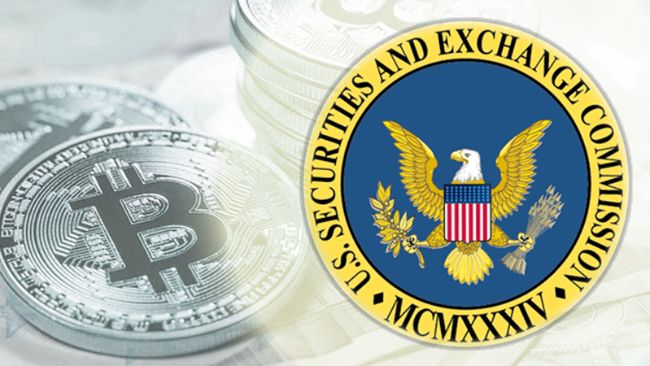In a pivotal development for the U.S. financial markets, the Securities and Exchange Commission (SEC) has approved rule changes by three national securities exchanges, Nasdaq, NYSE Arca, and Cboe BZX. These changes introduce generic listing standards for Commodity-Based Trust Shares, including those backed by spot digital assets.
This move marks a shift in the regulatory approach toward exchange-traded funds (ETFs) that hold physical commodities, particularly cryptocurrencies. The approval enables qualified products to be listed and traded without needing a separate rule change filing under Section 19(b) of the Exchange Act, potentially shortening timelines for product approvals.
Exchanges Allowed to List Certain Crypto ETFs Without SEC Pre-Approval
Under the new structure, exchanges can now list Commodity-Based Trust Shares if they meet the newly approved generic standards. These standards eliminate the need for a 19b-4 filing, which previously triggered a regulatory review lasting up to 240 days.
Instead, products that satisfy these pre-defined criteria can proceed without individual SEC clearance, reducing the timeline to as little as 75 days. The SEC cited “good cause” in approving the exchanges’ proposals ahead of the typical 30-day waiting period.
In a formal filing made Wednesday, the Commission stated that recent amendments to the proposals clarified key definitions and standard requirements. The agency found this sufficient justification to grant accelerated approval. According to the filing, the standards outlined in Rule 14.11(e)(4) will govern the listing of commodity-based trust shares moving forward.
Chair Paul Atkins States the Regulatory Intent
SEC Chairman Paul S. Atkins stated that the decision aims to keep U.S. capital markets at the forefront of digital asset innovation. He said the streamlined listing process would enhance investor choice and lower entry barriers to regulated digital asset products. He emphasized that these measures serve to align innovation with the safeguards of America’s established financial infrastructure.
In conjunction with the rule change approval, the SEC granted permission for the Grayscale Digital Large Cap Fund to be listed and traded. The fund comprises several digital assets, including Bitcoin and Ethereum, with smaller allocations to Solana, Cardano, and XRP. It had previously been restricted to accredited investors trading over the counter. This latest decision allows broader market access through public trading.
Options on Bitcoin ETF Indexes Also Approved
Furthermore, the SEC approved p.m.-settled options contracts based on the Cboe Bitcoin U.S. ETF Index and the Mini-Cboe Bitcoin U.S. ETF Index. These options include third Friday expirations, nonstandard expirations, and quarterly expirations.
These approvals indicate the Commission’s willingness to extend its regulatory scope to derivative products tied to cryptocurrency indices. The exchanges will use the process defined in Rule 6c-11 to list products under the new framework.
This rule, initially designed for traditional ETFs, has been adapted to accommodate digital asset-based ETFs. By adopting this method, the exchanges can streamline the path to market for various crypto ETFs, avoiding extended regulatory delays.
Eligibility Criteria for Listings Under New Standards
To qualify under the generic listing standards, a crypto ETF must meet specific market criteria. The underlying asset must either be traded on a market that is part of the Intermarket Surveillance Group (ISG) or have a surveillance-sharing agreement in place.
Additionally, the commodity should underpin a futures contract listed for at least six months on a designated contract market. Alternatively, the product may be eligible if its composition overlaps by at least 40% with an ETF already listed on a national securities exchange.
The SEC clarified that while the generic standards allow for expedited listings, they do not apply universally. If a proposed product falls outside the defined eligibility criteria, the exchange must still file a rule proposal with the Commission. This ensures that all products undergo a proper regulatory assessment when necessary.
Commissioner Caroline Crenshaw Raises Concerns
SEC Commissioner Caroline Crenshaw voiced caution about the rapid implementation of these listing standards. She warned that fast-tracking products could compromise investor protections. Crenshaw argued that delegating review responsibilities to the exchanges might result in unvetted or risky products reaching public markets without adequate scrutiny.
She expressed concerns about the absence of detailed evaluations typically required for novel financial instruments. The move was viewed positively by market analysts and participants. Bloomberg ETF analyst James Seyffart described the approval as a long-awaited development.
https://x.com/EricBalchunas/status/1968438815246197182
He noted that it sets a foundational framework for launching more crypto ETPs in the United States. According to Seyffart, the approval opens the door for a range of investment products tied to digital assets, especially as the SEC faces pending decisions on multiple spot crypto ETF applications.
Pending Applications Include Solana, XRP, Litecoin
The approval of these listing standards arrives as the SEC reviews spot ETF applications for several cryptocurrencies, including Solana (SOL), XRP, and Litecoin. Other assets like Avalanche (AVAX), Polkadot (DOT), and Binance Coin (BNB) are also part of pending applications.
The rule change could expedite decisions on these filings, given that exchanges can now submit under the pre-approved criteria rather than initiating full regulatory reviews. Jamie Selway, Director of the SEC’s Division of Trading and Markets, commented on the significance of the regulatory update.
He stated that the generic listing standards offer clarity and consistency. Selway noted that this rules-based approach ensures investor protections while supporting product innovation. According to him, this framework provides a rational method for bringing digital asset products to market without compromising oversight.
Grayscale Fund Composition Highlights Market Trends
The SEC’s approval of the Grayscale Digital Large Cap Fund underscores the growing prominence of specific assets in institutional portfolios. The fund holds around 80% Bitcoin and approximately 11% Ethereum. Smaller allocations include Solana, Cardano, and XRP. This structure reflects current market capitalization trends among top digital assets and could influence the composition of future ETFs under the new standards.
The approval sets a precedent for how digital asset-based ETPs will be treated under U.S. securities law. By providing a clear and defined path to market, the SEC has established a structure that could reduce market uncertainty. This action represents a marked departure from previous case-by-case assessments, which often delayed or denied crypto ETF proposals.
Following the approval, industry observers expect an increase in crypto-related investment products entering the market. The reduction in regulatory barriers is likely to encourage asset managers to pursue new listings. Matt Hougan, Chief Investment Officer at Bitwise, stated that the rule change could “blow the market wide open,” indicating expectations of accelerated product rollouts.



